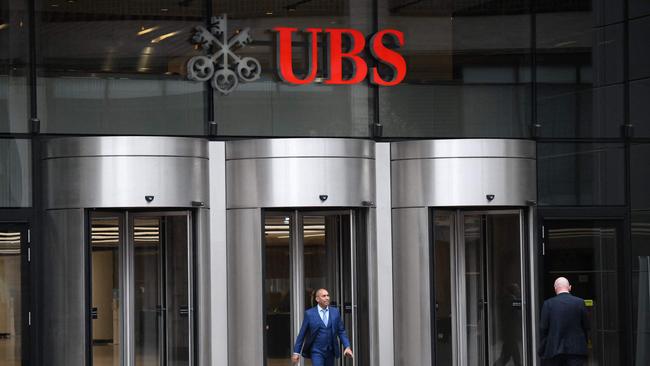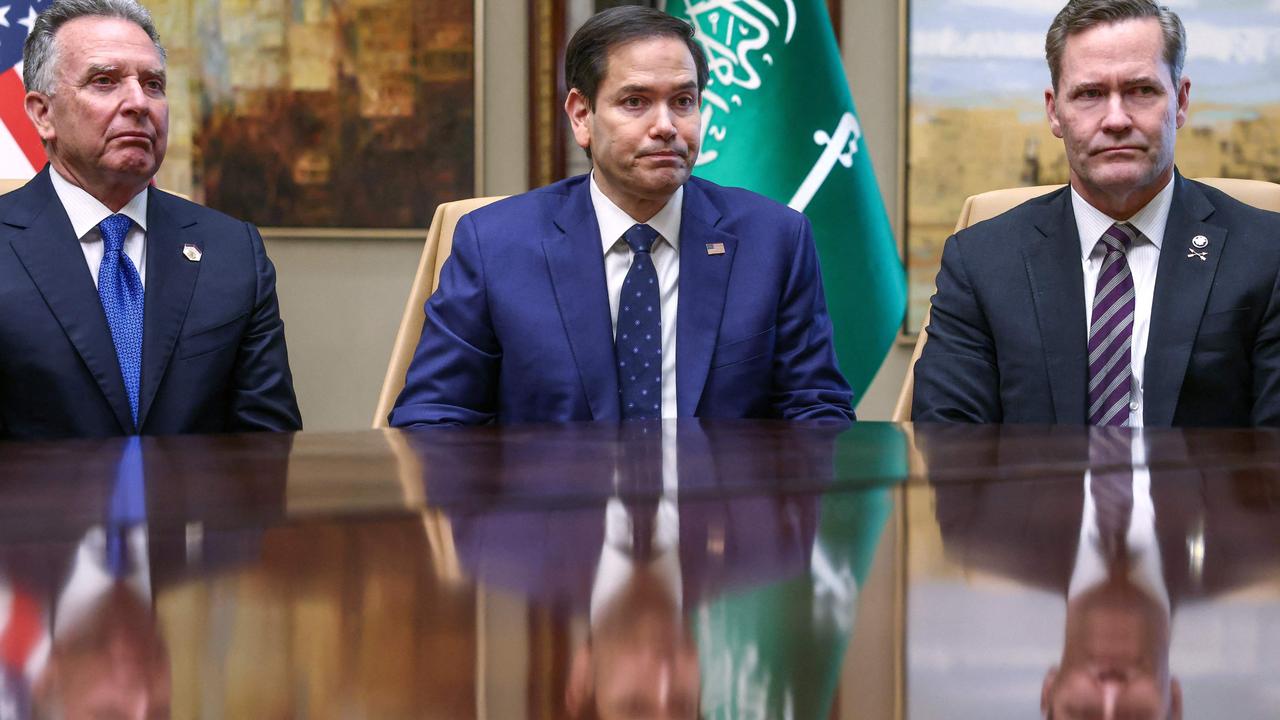What’s next for UBS after its whirlwind rescue of Credit Suisse
Crunching the two banks together will likely take years and involve cutbacks to Credit Suisse’s troubled investment bank.

A weekend of frantic deal making changed everything for UBS Group.
A cut-price, $US3.2bn ($A4.77bn) takeover of its top domestic rival, Credit Suisse Group, reinforces UBS’s position as one of the biggest managers of money for the world’s wealthy.
But the government-orchestrated rescue also represents an abrupt shift in strategy for UBS – which after an earlier near-death experience of its own had spent years becoming duller by design.
Now Switzerland’s biggest lender, under chief executive Ralph Hamers and Chairman Colm Kelleher, faces the hugely complex task of combining with another systemically important global bank. The challenge is made harder by the substantial overlaps between the two businesses, and by the many legal difficulties that have dogged its accident-prone rival.
In an illustration of the tumult UBS is potentially embracing, the buyer’s stock swung wildly Monday, first selling off sharply only to rally before closing 1.3 per cent higher. The gap between the day’s highs and lows was nearly 23 percentage points, the highest on record, according to Dow Jones Market Data figures dating back to 1985.

The cost of insuring UBS debt against default leapt to the highest in more than a decade. The annual cost to insure EUR10,000 of five-year, senior UBS debt using instruments called credit-default swaps rose to EUR168 Monday – up from EUR117 Friday, and the highest since August 2012, according to S&P Global Market Intelligence data.
The tie-up came after Credit Suisse customers fled the bank last week and Swiss regulators stepped in to force a merger over the weekend. Switzerland’s financial sector is one of the largest in the world relative to its economy and 8.7 million population, making the fate of the country’s largest banks of vital concern to the government.
The deal creates a behemoth at home in Switzerland and a global powerhouse helping the rich to invest. Both banks cater to the ultra-wealthy and have Wall Street arms trading stocks and bonds and giving companies advice.
The enlarged business will manage about $US5 trillion in invested assets, more than at rival US banks with wealth-management arms such as Morgan Stanley, and putting it in the leagues of BlackRock and Vanguard Group in investing.
“UBS has done the deal of a lifetime,” said Davide Serra, founder of asset manager Algebris Investments, noting that UBS’s net asset value rose 70 per cent with the Credit Suisse buy. “This will be very positive for all UBS shareholders.” Swiss authorities granted a competition waiver, a $US100bn liquidity line, a backstop of more than $US9bn on some assets, and a long grace period for UBS to add more capital. The megamerger is the first among a set of 30 global banks that regulators designate as systemically important for their size and interconnectedness.
In addition, about $US17bn of Credit Suisse’s riskiest bonds got wiped out by authorities, surprising investors in that market.
RBC analyst Anke Reingen said UBS is paying the equivalent of 0.6 per cent of assets under management in Credit Suisse’s wealth-management business for that operation, much less than in deals not done under duress.
If the help from Swiss authorities is sufficient and UBS’s funding costs normalise, “this is a financially very attractive deal, longer-term” she said.
UBS needed a Swiss government bailout in 2008 to cover losses on toxic securities, but later recovered to become one of Europe’s most stable and profitable banks, while Credit Suisse lurched through scandals and financial losses.
In a late-night meeting with analysts Sunday, Mr Hamers, the UBS CEO, said his bank will gain coveted wealth-management clients in Asia and Latin America. He said Credit Suisse bankers and research analysts in the US could help broker more investments for global family offices, which manage money for ultrawealthy families, and increasingly want direct access to investment-banking deals.
UBS could be distracted for years by the integration, analysts said, which is likely to involve cutbacks both to Credit Suisse’s troubled investment bank and its universal bank in Switzerland.
Mr Hamers said annual costs would come down by around $US6bn by 2027 from fewer jobs, but declined to detail the lay-offs.
Shrinking the investment bank is likely to involve both job cuts and running down the portfolio of assets on Credit Suisse’s trading books. Thousands of people in New York and London work in the Credit Suisse investment bank that UBS says will become much smaller.
UBS in the short term will also become riskier from taking on Credit Suisse’s troubled investment bank, including its legal bills, analysts said.
Running down assets within the investment bank will be UBS’s biggest challenge, said Andreas Venditti, a banking analyst at Swiss bank Vontobel. It will take time, and the speed with which the deal had to be closed means UBS didn’t conduct deep due diligence on its rival’s books, including derivatives portfolios and other assets with complex features, he said.
Absorbing Credit Suisse’s domestic operations will also be costly, given charges such as severance payments. The two banks together employ more than 35,000 staff in Switzerland.
UBS and Credit Suisse employees combined make up almost half of banking-sector jobs in the country, said Heinz Gabathuler, a regional manager at the association of bank employees in Switzerland.
Swiss bank staff enjoy protections in restructurings, such as early-retirement payouts and long notice periods for lay-offs under some circumstances. Mr Gabathuler said it is too early to tell how many jobs will go, but his association is ready to begin negotiations.
“We are of course concerned that this will have a huge impact on the banks in Switzerland, not only Credit Suisse but also UBS,” he said.
The Wall Street Journal






